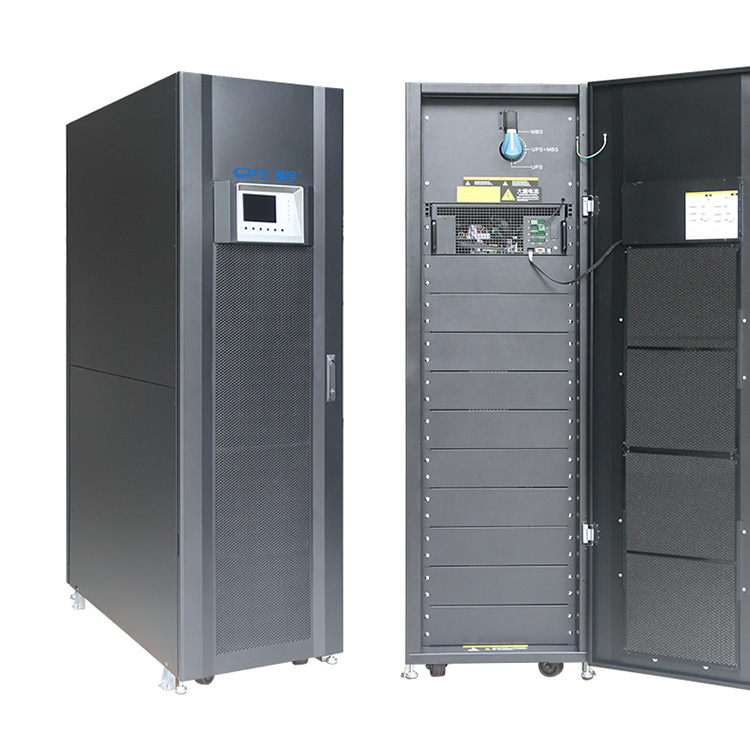Applications and Use Cases of Modular UPS
2024-07-12
A modular UPS (Uninterruptible Power Supply) system refers to a type of UPS configuration that consists of multiple independent modules working together to provide power protection and continuity. Here are the key aspects and functionalities of modular UPS systems:
Configuration and Design
1. Modular Architecture
- Independent Modules: Comprises several modular units, each with its own power capacity and battery backup.
- Scalability: Allows users to scale up or down by adding or removing modules based on power requirements, providing flexibility in capacity planning.
2. Redundancy and Reliability
- N+1 Redundancy: Common configuration where one extra module is included beyond the necessary capacity to ensure continuous operation even if one module fails.
- Fault Tolerance: If a module fails, the remaining modules continue to supply power, minimizing downtime and ensuring critical loads remain operational.
Operational Features
1. Hot-Swappable Modules
- Maintenance and Service: Modules can be replaced or added without shutting down the entire UPS system, enhancing uptime and ease of maintenance.
- Fault Isolation: Enables quick identification and replacement of faulty modules, minimizing disruption to connected equipment.
2. High Efficiency
- Efficient Design: Modular UPS systems often incorporate advanced technology such as high-frequency switching and improved battery management to maximize energy efficiency and reduce operating costs.
- Energy Savings: Efficiency ratings are typically high, especially at medium to high loads, optimizing energy usage and reducing environmental impact.
Applications and Use Cases
1. Data Centers and IT Environments
- Critical Power Protection: Used to safeguard servers, networking equipment, and data storage devices from power fluctuations, outages, and surges.
- Scalability: Ideal for environments where power requirements may change over time due to expansion or technological upgrades.
2. Industrial and Manufacturing
- Process Control: Ensures uninterrupted operation of automated machinery, PLCs (Programmable Logic Controllers), and critical production systems.
- Reliability: Provides stable power supply in industrial settings where power quality is crucial for continuous production.
Considerations
- Initial Investment: Modular UPS systems may have a higher initial cost compared to traditional standalone UPS units due to their scalable and redundant design.
- Installation and Configuration: Requires careful planning and expertise to design and deploy the UPS system to meet specific power needs and operational requirements.
- Compatibility: Ensure compatibility with existing infrastructure, including electrical systems, load characteristics, and integration with monitoring and management software.
Summary
A modular UPS system offers enhanced flexibility, reliability, and scalability compared to traditional UPS solutions. It is well-suited for applications requiring high availability, fault tolerance, and efficient power management, such as data centers, industrial facilities, and critical IT environments. Understanding its design principles, operational benefits, and considerations helps organizations make informed decisions when selecting and implementing modular UPS solutions to ensure uninterrupted power protection for their operations.



